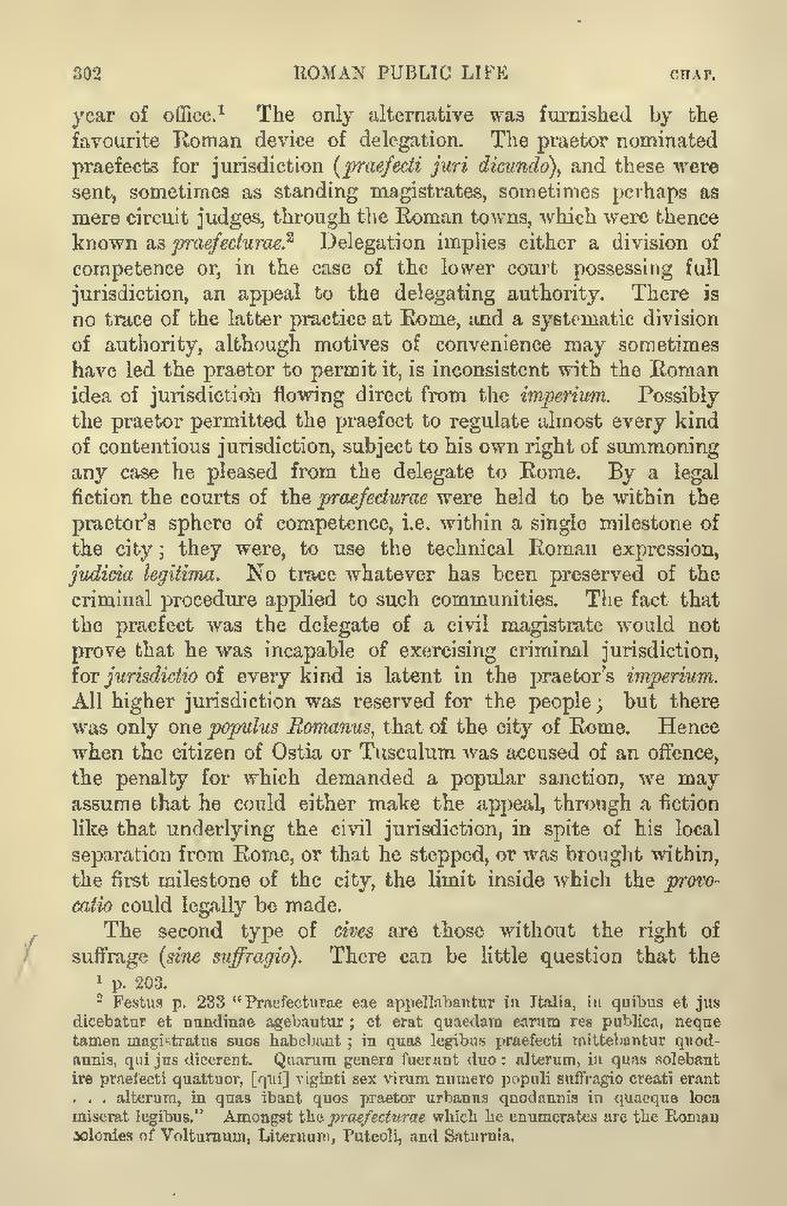year of office.[1] The only alternative was furnished by the favourite Roman device of delegation. The praetor nominated praefects for jurisdiction (praefecti juri dicundo), and these were sent, sometimes as standing magistrates, sometimes perhaps as mere circuit judges, through the Roman towns, which were thence known as praefecturae.[2] Delegation implies either a division of competence or, in the case of the lower court possessing full jurisdiction, an appeal to the delegating authority. There is no trace of the latter practice at Rome, and a systematic division of authority, although motives of convenience may sometimes have led the praetor to permit it, is inconsistent with the Roman idea of jurisdiction flowing direct from the imperium. Possibly the praetor permitted the praefect to regulate almost every kind of contentious jurisdiction, subject to his own right of summoning any case he pleased from the delegate to Rome. By a legal fiction the courts of the praefecturae were held to be within the praetor's sphere of competence, i.e. within a single milestone of the city; they were, to use the technical Roman expression, judicia legitima. No trace whatever has been preserved of the criminal procedure applied to such communities. The fact that the praefect was the delegate of a civil magistrate would not prove that he was incapable of exercising criminal jurisdiction, for jurisdictio of every kind is latent in the praetor's imperium. All higher jurisdiction was reserved for the people; but there was only one populus Romanus, that of the city of Rome. Hence when the citizen of Ostia or Tusculum was accused of an offence, the penalty for which demanded a popular sanction, we may assume that he could either make the appeal, through a fiction like that underlying the civil jurisdiction, in spite of his local separation from Rome, or that he stepped, or was brought within, the first milestone of the city, the limit inside which the provocatio could legally be made.
The second type of cives are those without the right of suffrage (sine suffragio). There can be little question that theviginti sex virum numero populi suffragio creati erant . . . alterum, in quas ibant quos praetor urbanus quodannis in quaeque loca miserat legibus." Amongst the praefecturae which he enumerates are the Roman colonies of Volturnum, Liternum, Puteoli, and Saturnia.]
- ↑ p. 203.
- ↑ Festus p. 233 "Praefecturae eae appellabantur in Italia, in quibus et jus dicebatur et nundinae agebantur; et erat quaedam earum res publica, neque tamen magistratus suos habebant; in quas legibus praefecti mittebantur quodannis, qui jus dicerent. Quarum genera fuerunt duo: alterum, in quas solebant ire praefecti quattuor, [qui
